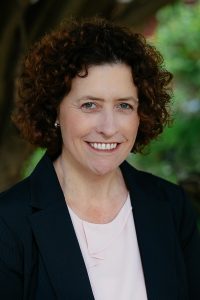You hear a lot about depression and anxiety in conversation about mental health, but where do low prevalent conditions like bipolar disorder and schizophrenia fit into the picture. They may have lower diagnosis rates, but we know they require more complex care plans. In this episode we take a look at some programs providing support, treatment and encouragement for people living with these mental health conditions.
Guest Speakers
 Fay Jackson is the Deputy Commissioner of the NSW Mental Health Commission, CEO of Vision In Mind and General Manager of Inclusion at Flourish Australia. She has also been the Director of Consumer, Carer and Community Affairs with the Illawarra South East Sydney Mental Health Service.
Fay Jackson is the Deputy Commissioner of the NSW Mental Health Commission, CEO of Vision In Mind and General Manager of Inclusion at Flourish Australia. She has also been the Director of Consumer, Carer and Community Affairs with the Illawarra South East Sydney Mental Health Service.
Fay’s story of overcoming severe mental health issues to gain her position in society is inspiring. She is passionate and funny in her speeches and has won many awards for her work. She was a guest on the ABCs One Plus One program in early 2017 and a panellist on the ABC’s Q and A program in 2015. Her appearance on this program prompted a record number of tweets and emails to the ABC.
Dr Rodney Juratowitch is a senior Psychiatrist who currently works in Orange for Western Local Health District as Director of MHEC, a virtual mental health telephony and video service that serves over half of NSW, and in Turon House a statewide tertiary referral rehabilitation unit for women with severe mental illness who cannot be safely housed. Dr Juratowitch also works one day a week in Sydney as a community Psychiatrist.
Dr Juratowitch has a lifelong interest and passion to provide mental health care equity for rural and remote Australians. He has worked as director of Greater Southern Area health based out of Wagga and also superintendent of Tamworth Base hospital mental health unit.
He is currently completing research papers on scheduled mental health patients in rural NSW, rehousing chronically homeless women and the use of video in rural and remote mental health
 Kathi Boorman is the new Chief Executive Officer for One Door Mental Health and also sits on the Board for Perinatal Anxiety and Depression Australia (PANDA). Kathi comes to One Door with over 25 years’ experience working and leading government and non-government mental health services. She is passionate about ensuring organisations are centred on improving the lives of those with a lived experience and working collaboratively with all involved. Additionally, Kathi’s life is also centred on the nurturing and growth of her family of three beautiful daughters and one little puppy called ‘Molly’. She is excited about the journey that is ahead for One Door in being a purpose driven organisation.
Kathi Boorman is the new Chief Executive Officer for One Door Mental Health and also sits on the Board for Perinatal Anxiety and Depression Australia (PANDA). Kathi comes to One Door with over 25 years’ experience working and leading government and non-government mental health services. She is passionate about ensuring organisations are centred on improving the lives of those with a lived experience and working collaboratively with all involved. Additionally, Kathi’s life is also centred on the nurturing and growth of her family of three beautiful daughters and one little puppy called ‘Molly’. She is excited about the journey that is ahead for One Door in being a purpose driven organisation.
Background
Low prevalence mental illnesses, such as schizophrenia and bipolar disorder, are complex and severe mental illnesses that affect fewer Australians than other mental illnesses. One in 50 Australians will experience bipolar disorder while schizophrenia will touch the lives of one in 100 people.
Bipolar disorder, previously known as ‘manic depression’, is a mental illness where people experience extreme changes in mood ranging from highs (manic) to lows (depression).
Schizophrenia is a mental illness where people experience delusions, hallucinations, disorganised speech or behaviour, and reduced expression and motivation.
Bipolar disorder and schizophrenia can both be managed with professional help. Many people who experience these low prevalence mental illnesses lead productive and valuable lives.
Resources
Black Dog Institute – provides information on bipolar disorder including its causes, treatments and how to seek help.
SANE Australia – provides many comprehensive factsheets and guides for those with a low prevalence mental illness, their carers, and the general public.
SANE also has Lived Experience Forums where people can share their experiences with mental illness, including bipolar disorder and schizophrenia, and connect with others.
Reachout – provides information for young people about bipolar disorder and schizophrenia and where to seek help.
Help Services
If you or someone else is in immediate danger, call 000 or go to your nearest hospital emergency department.
If you’re concerned about your own or someone else’s mental health, you can call the NSW Mental Health Line 1800 011 511 for advice.
Having a tough time and need someone to talk to right now? The following services are there to listen and help you out. They are confidential and available 24/7.
- Lifeline – 13 11 14
- Suicide Call Back Service– 1300 659 467
- MensLine – 1300 789 978
- Kids Help Line (for young people aged 5 to 25) – 1800 55 1800
Your local General Practitioner (GP)
GP’s are trained to assist with both mental and physical health problems and can tell you where you can find further help and support if needed. If you do not have a regular doctor that you’re happy with, you can ask at the local practice for a GP who is experienced in mental health, contact your local RAMHP Coordinator or visit www.healthdirect.gov.au for information on GPs in your local area.
SANE Australia – 1800 187 263
SANE offers telephone and online chat services (both 10am-10pm/ Mon-Fri) where you can talk to a mental health professional for information, guidance and referrals.
Beyond Blue – 1300 224 636
The Beyond Blue Support Service offers telephone (24hrs/7days) and online (3pm-12am/7days) counselling, support and referrals from trained professionals.
OneDoor – 1800 843 539
One Door Mental Health is a mental health service provider specialising in severe and persistent mental illnesses, with services now accessible through the National Disability Insurance Scheme (NDIS). You can call One Door for information, referral and support (9am-5pm/Mon-Fri). One Door also offers recovery-orientated services in regional NSW including support programs and online forums.
Articles
Schizophrenia takes many forms, and Heidi’s has its benefits
ABC, 21 May 2019
